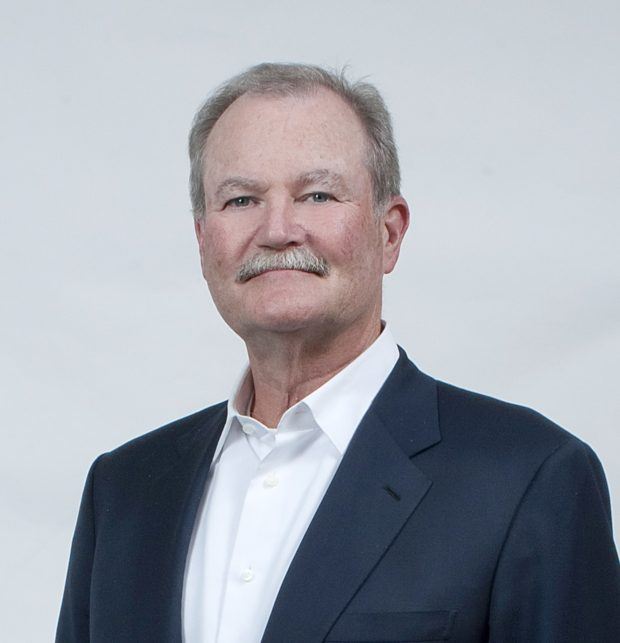Boring is not a description of the insurance industry that sits well with Brian Duperreault.
But it’s one that the majority of millennials use to explain why insurance has little appeal as a career choice, he reported recently.
“For someone whose whole career has been dedicated to an industry that promises to protect, that really hurts. At the very least, we’ve done a terrible job in helping people to understand the value in what we do,” said the industry veteran, who now leads Hamilton Insurance Group, during an address at the International Insurance Society’s Global Insurance Forum in June.

“With hundreds of thousands [of professionals] approaching retirement in an industry that’s dismissed as boring and static, and with disruption looming on the horizon, I believe we are staring into the jaws of a crisis,” he said.
Starting off his speech titled “Can We Disrupt Ourselves?” Duperreault called the industry’s inability to attract “digital natives” into the fold “an existential threat.”
He concluded by urging insurers to collaboratively find a solution. “The men and women in this room have presided over some of the great developments in our industry. Catastrophe modeling, deregulation, globalization, just to name a few, all happened on our watch.
“We’re not strangers to bold moves. Innovation isn’t a foreign concept, but collectively, we don’t seem to know how to crack this nut. How do we attract hyperconnected, entrepreneurial ‘digital natives’ into the generally old-school world that so desperately needs them?” he asked.
Borrowing the term “digital natives” to apply to millennials from writers like Don Tapscott, author of “The Digital Economy,” and Marc Prensky, who reportedly coined the phrase in a 2001 article, Duperreault contrasted “digital native” with the “digital immigrants” of his generation making up the ranks of the industry today.
“They want to be team players. They want their careers to have purpose. They want to build new things that matter. They use social media to collaborate. They crowdsource everything from fundraising to business capital.
“They fight for worthy causes by alerting each other to things that distress them. They don’t see much difference between work and leisure, and don’t see the point of rigid work schedules and being tied to an office.
“They see hierarchy as an obsolete impediment to team progress. They need to get things done, and waiting for permission doesn’t strike them as sensible,” he said, describing millennials.
“Now, does that list describe how the typical insurance company operates? I don’t think so. That’s a red flag that we need to pay attention to,” he said, sounding other alarm bells about the number of professionals who will be retiring—with 25 percent eligible to retire in just three years.
He also noted a report from Accenture in 2010 (published in The New York Times, titled “The Tough Match of Young Workers and Insurance,” June 12, 2010), warning that “the industry’s apprentice structure, with its long learning curve and slow promotions, in no way suits a millennial’s expectation of getting rapid feedback or working in a flat organization that offers dynamic career development.”
The latest alarm bell was the most recent report finding that only 5 percent of high school and college graduates thought a career in insurance was worth looking at. “When asked why, they said they thought the industry was dull, conservative and doesn’t offer much of a chance to make a difference,” Duperreault said.
“Clearly, all industries are facing massive disruptions because of technology. With new models of service delivery, new categories of products and restructured value chains, society and the customer expect far more than traditional businesses can offer.
“These expectations represent a potentially bleak scenario for the insurance industry because, in many respects, we are way behind the curve as far as technology is concerned. We are groping in the dark for an effective solution to attract digital natives to the industry,” he said.
Having embraced technology, millennials use it “to navigate their world, their relationships and their work, swiftly and creatively,” and they are leaping ahead of digital immigrants, Duperreault said. Referring to the process as “digital lapping,” he said, “This lapping of one generation by another is the basis for disruption that’s blowing apart traditional business models. For digital natives, disruption is the new normal.”
Duperreault also identified millennials as the most diverse and most tolerant generation. During a separate speech a week later, which he delivered at the IICF Women in Global Insurance Conference addressing the lack of women in leadership roles in the industry, Duperreault suggested attracting millennials could solve the second problem as well. “Perhaps a workforce that wants to work collaboratively, embraces inclusion and doesn’t adhere to rigid schedules will solve the gender equality issue on its own. It’s likely that the digital generation won’t tolerate the norms that have developed on an older management’s watch,” he said.
Related Videos:





















 Lessons From 25 Years Leading Accident & Health at Crum & Forster
Lessons From 25 Years Leading Accident & Health at Crum & Forster  Retired NASCAR Driver Greg Biffle Wasn’t Piloting Plane Before Deadly Crash
Retired NASCAR Driver Greg Biffle Wasn’t Piloting Plane Before Deadly Crash  Modern Underwriting Technology: Decisive Steps to Successful Implementation
Modern Underwriting Technology: Decisive Steps to Successful Implementation  What Analysts Are Saying About the 2026 P/C Insurance Market
What Analysts Are Saying About the 2026 P/C Insurance Market 








